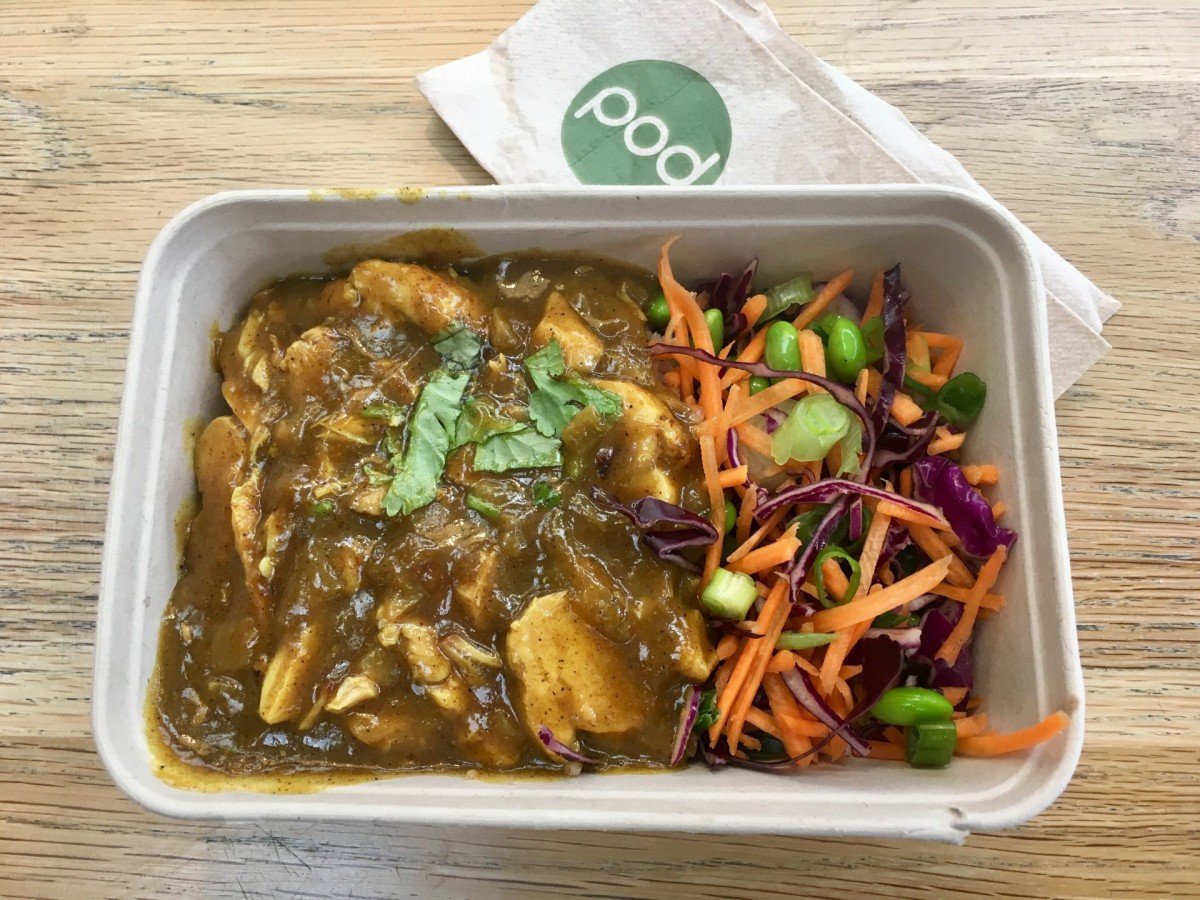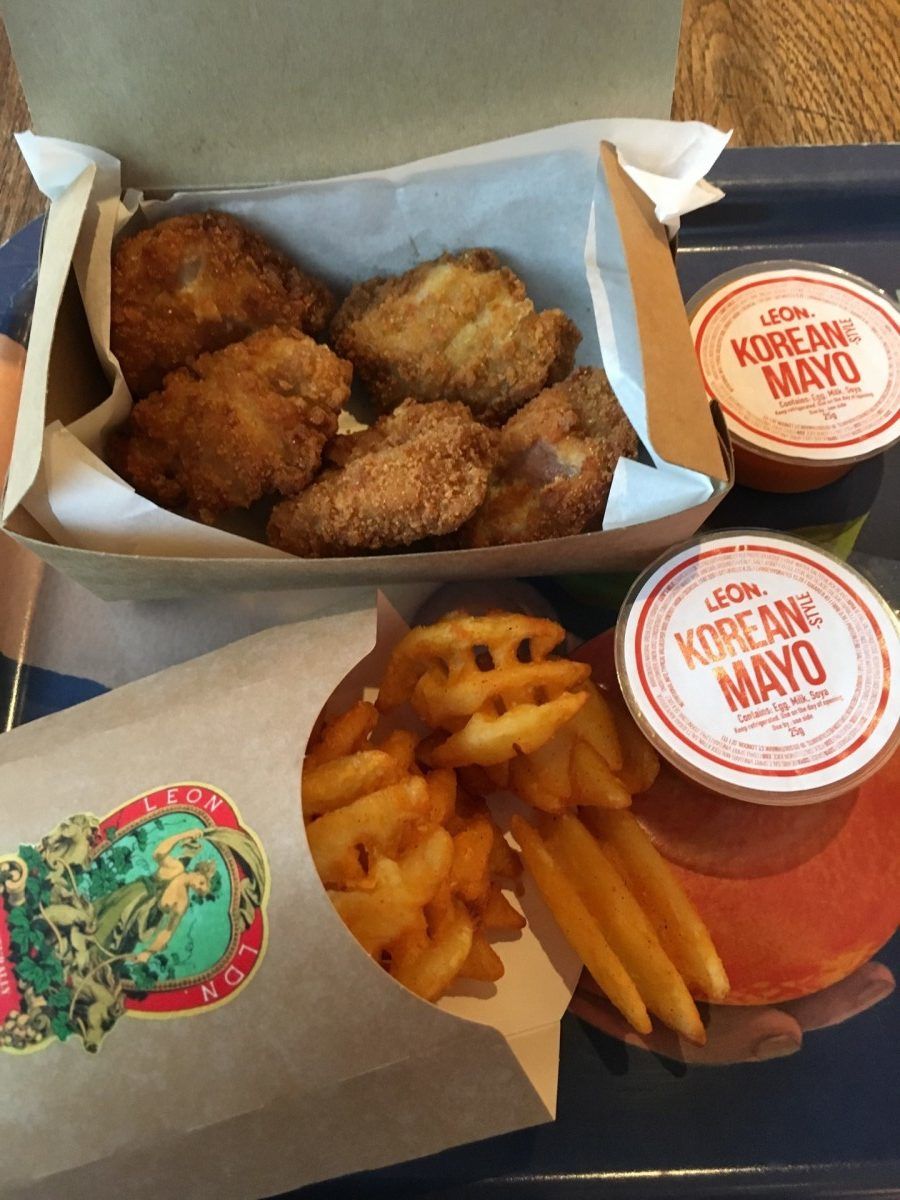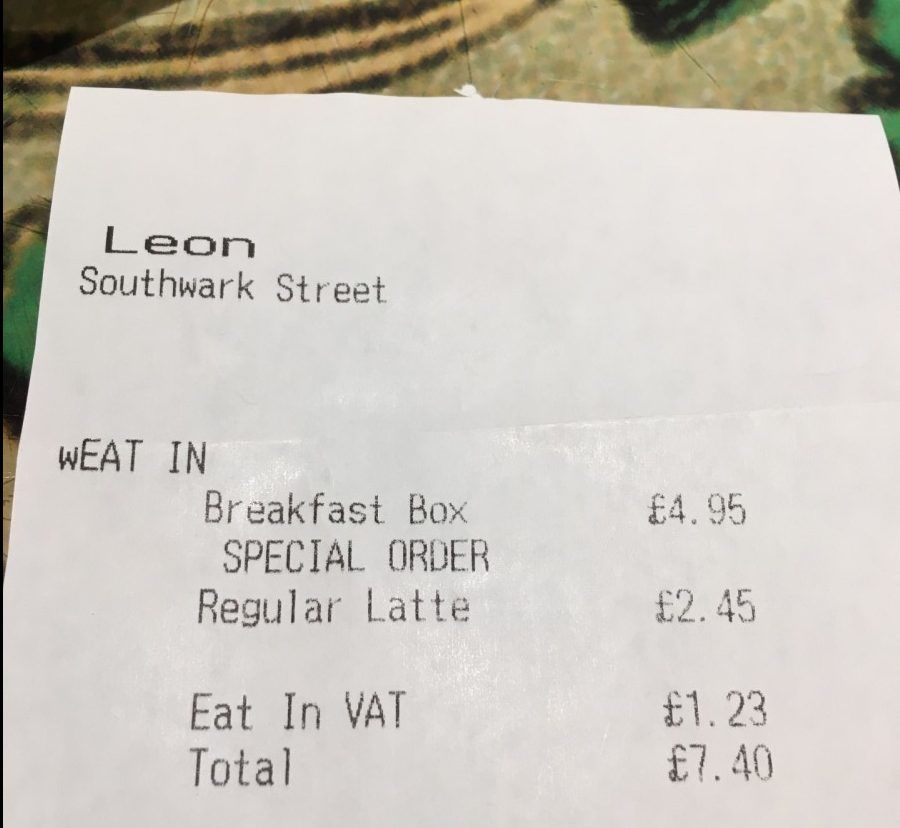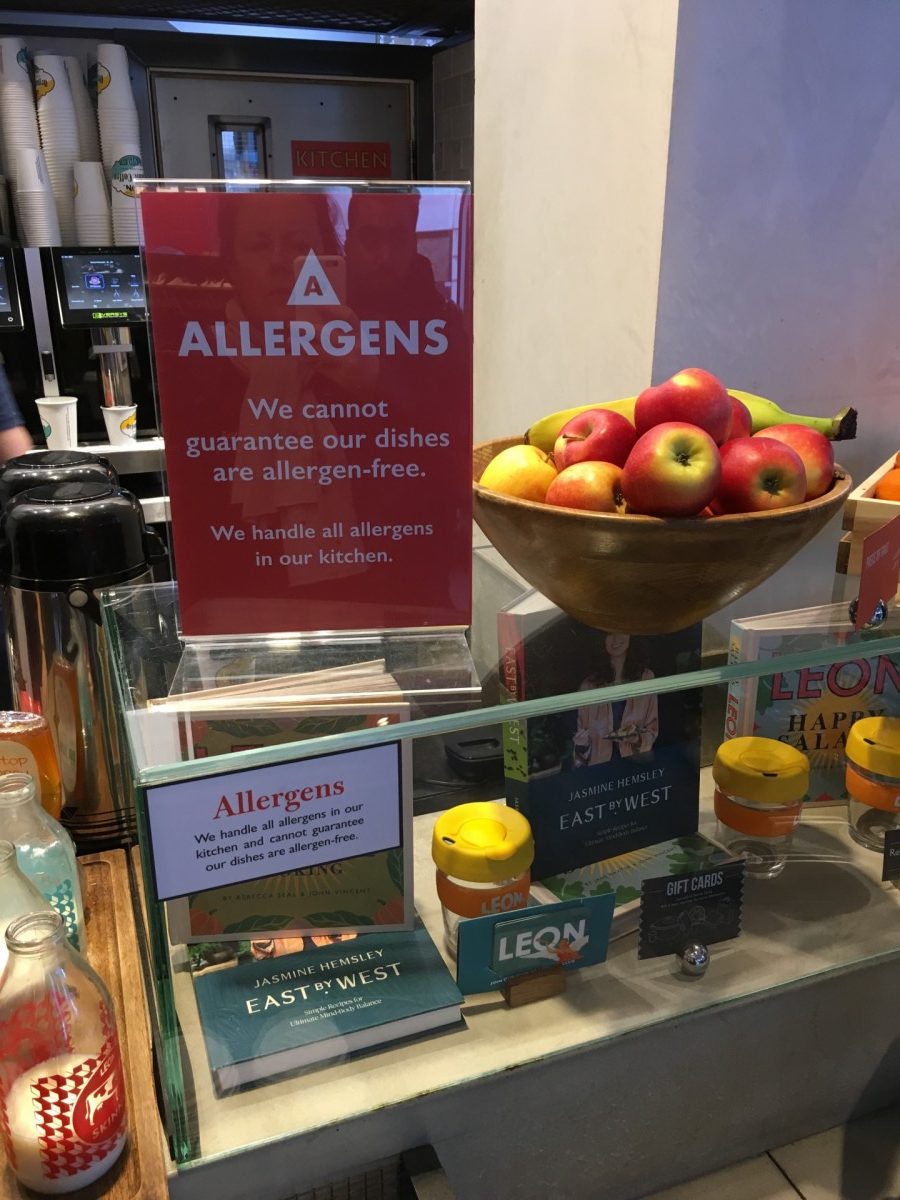After Pret, Where To Next For Allergy Labelling?
In light of the recent tragic case of Natasha Ednan-Laperouse involving Pret in the UK, many in the allergy community have wondered where the labelling of allergens in restaurants will go. You can read more about the case here which also explains concisely what the labelling rules are.
Slowly, we seem to be seeing some changes emerging, and not always for the better.
First there was Pod. Previously my go-to favourite for work day breakfasts where all the porridge was made with gluten free oats or a cheeky bacon sandwich, made on gluten free bread. They had a process whereby coeliacs would have their bread toasted in special toaster bags to avoid the chance of cross contamination. Coeliac win! Their Thai green curry was a favourite of mine for lunch. But slowly the gluten free items started disappearing. First the fresh salmon wrapped in nori (that even came with gluten free tamari sauce to dip in) suddenly disappeared from the menu. I honestly loved those. Then the salad menu was refreshed and the standard salad base now includes barley, so no longer gluten free.

Then, at the time of press coverage on the Pret incident, Pod inexplicably removed ALL allergy labelling from their above the till (ordering point) signage, leaving only sesame signposted as an allergen – precisely the allergen to which Natasha had tragically had an allergic reaction to. The online allergen data remained and I understand the change for in-store labelling was temporary. But I’ve been so disappointed by their stance (and now lack of gluten free items) that I’ve not returned to Pod as a customer since.
In another example of changing approach to allergy management by restaurants, viewers of BBC1’s Watchdog may have seen the programme’s excellent investigation of restaurants asking diners with food allergies to sign waivers and disclaimers. The report included UK chain Frankie and Benny’s who are a Coeliac UK accredited venue. You can read the about more about the programme’s findings here.
And now to Leon….

Leon plan to publish a press release on this soon to fully clarify their new position on allergy labelling and questions for customers at the till point, so I won’t pre-empt that (I will update this post once published) but I can say from experience of visiting Leon, that things are changing.
Yes, LEON, much loved and frequented by those in the gluten free/allergy community is trialling a new approach for customers with allergies.
What’s changing at Leon on allergen labelling?
Customers are now being asked at the till point if they have any allergies the server should be aware of. I visited Leon Spitalfields and I was not asked this despite giving many leading hints on allergens / my dietary restrictions.
Having established with Leon this wasn’t correct and the staff were supposed to be checking, I happened to be in London Bridge the following day so I visited Leon Southwark.
Here I was asked about allergies. My order was put through as a special order. I saw the pass staff call the order through as a special order to the kitchen staff. The special order was also noted on my receipt:

I understand calling through as a special order was not the correct procedure so perhaps Leon need to look at training for staff in this area. However, as I customer I was happy if it meant extra care was taken.
And this sign. Placed prominently on the counter, impossible to miss:

“We handle all allergens…”. What does that even mean? The sign doesn’t even state if it’s all food allergens. Assuming it is, does this mean the top 14 allergens? Or do they handle all known allergens, even those outside the top 14 which are the allergens which need to be identified legally?
So, what’s not changing at Leon?
Despite the above, Leon prepare gluten and gluten free items in separate areas with clean gloves and dedicated utensils to prevent cross contamination. As far as I know, this isn’t changing.
I’m not sure how I feel about being asked about my allergies. As a Coeliac, I do a large part of my due diligence before I ever enter a restaurant through reviewing the menu online and frequently calling ahead to discuss my needs. Once I’ve found a trusted place, I become a loyal customer and return regularly, which is why I am a little disappointed by Leon.
However, I also have a nut allergy. My personal experience is that restaurants usually communicate the ways they are competent with preparing my food gluten free in their kitchens, yet when I mention the nut allergy, there is a great deal of extra concern.
My concern here is that by asking customers whether they have any allergies, restaurant staff (who may not always be fully trained in managing allergens) then make the decision on whether it’s safe for a customer to eat there. Not through a true risk assessment, but as an attempt to cover themselves in the event of a subsequent allergic reaction by a customer and a potential litigation against them.
What if I’m told by the restaurant staff that it’s not safe to eat there – even if I believe this not to be true? Do I leave? Do I “risk” it (even if I don’t believe there to be a real risk for me)? What if I’m with my kids, they’re tired and hungry? Do we all leave? What does the restaurant do with the information on allergens from their customer responses? Hopefully Leon at least will publicly clarify their position on this soon.
But I’m left with wondering where do we go from here? If a previously very trusted restaurant like Leon displays signs like this and routinely asks customers about their allergies, BUT we believe they take good care behind the scenes, would you still trust them to eat there?

Do you see this sign as an attempt for restaurants to cover themselves in the event of an allergic reaction? Or does a sign like this make you want to run out and forget about eating those amazing gluten free chicken nuggets and fries?
Who should make the ultimate decision on whether a restaurant is suitable for a diner with an allergy; the restaurant staff, the customer or a partnership of both?
Interested in your thoughts on this one. Please do share below…


Leon must be an English thing as we’ve never heard of it, from your photo it looks like we’d love it! The sign would make me run to the hills though unless, like you, I already knew about their procedures and was happy they hadn’t changed. We’ve pretty much stopped eating out anywhere except Pizza Hut (we have kids) but luckily my husband (who’s the coeliac) is a brilliant cook and we eat like kings at home anyway.
Thanks for stopping by and commenting. Whereabouts in the world are you?
I totally agree with you, and it’s also hard when you have kids when eating out. Sounds like we have a similar set up – I am the only Coeliac in my family (I have young twins) but meeting my dietary restrictions is the main driver for which restaurant we choose. But when the kids are hangry, they’ve got to eat!
Leon is a UK based chain but they are expanding rapidly so perhaps you’ll see one soon?
I was diagnosed with Coeliac disease over 30years ago. I dreaded going out and would decline invites from work colleagues. Over the last 8years I gradually started to go out. But with several fails over the past 2years I have become less trusting and no longer enjoy going out. I often see Gluten free labelling but then ‘not suitable for coeliacs’. Aghhh.
Sorry to hear you’ve had several fails recently. What do you think about the ‘not suitable for coeliacs’ labelling? Do you think it’s a fair risk assessment by the producer / restaurant or some way to avoid bad publicity etc in the event of an error being made?
I do understand why restaurants feel they have to cover themselves, but as you say, it does reduce your confidence in their ability to a gluten free meal. For me, it’s on the same level as those “non-gluten containing” meals, where I always want to check about separate utensils and fryers etc. Leon has always been a go to place for me, so I’ll be interested to see how this progresses.
The biggest shame in this is that it involves Leon which is such a trusted place for coeliacs. Their processes aren’t changing as far as I know so it’d be interesting to see what impact these allergen warning signs and questioning on allergies have on Coeliac customers – do we still trust and eat there or not?
This post is spot on. I avoid eating in places with these disclaimers because I fear it may betray a laziness and carelessness which could make me ill. As a Coeliac, I’m well aware of what I need to query in restaurants. I eat in places which answer my questions to my satisfaction. MY questions. Not questions they think might be asked of them in court at a later date. I’m an intelligent adult, I will take the responsibility of assessing the risk myself. All I need the restaurant to do is to give me honest answers. I’ll do the rest.
Thanks for sharing this, very well said! I absolutely agree.